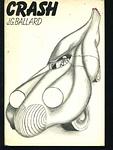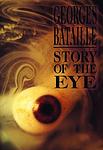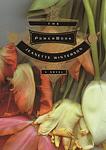The Greatest "Experimental, London" Books of All Time
Click to learn how this list is calculated.
This list represents a comprehensive and trusted collection of the greatest books. Developed through a specialized algorithm, it brings together 300 'best of' book lists to form a definitive guide to the world's most acclaimed books. For those interested in how these books are chosen, additional details can be found on the rankings page.
Genres
The "Experimental" category of books is characterized by works that challenge traditional literary conventions and push the boundaries of form and content. These books often incorporate unconventional narrative structures, language, and themes, and may experiment with different mediums such as poetry, visual art, or multimedia. The goal of experimental literature is to create new and innovative ways of storytelling that challenge readers' expectations and expand the possibilities of what literature can be.
The "London" category of books encompasses stories that are set in the city of London, England. These books may explore the history, culture, and people of the city, or they may use London as a backdrop for fictional tales of love, mystery, and adventure. From classic literature to contemporary fiction, the "London" category offers a diverse range of books that capture the essence of this iconic city.
Countries
Date Range
Reading Statistics
Click the button below to see how many of these books you've read!
Download
If you're interested in downloading this list as a CSV file for use in a spreadsheet application, you can easily do so by clicking the button below. Please note that to ensure a manageable file size and faster download, the CSV will include details for only the first 500 books.
Download-
1. The Golden Notebook by Doris Lessing
The novel centers around a woman named Anna Wulf, a writer who keeps four notebooks, each representing a different aspect of her life: her experiences in Africa, her current life in London, a novel she is writing, and her personal experiences. As Anna's mental state deteriorates, she attempts to unify her fragmented self in a fifth notebook, the golden notebook. The novel explores themes of mental breakdown, communism, the changing role of women, and the fear of nuclear war.
-
2. Orlando: A Biography by Virginia Woolf
The novel follows the life of a young nobleman in Elizabethan England who inexplicably transforms into a woman at the age of 30 and lives on for three centuries without aging. Throughout the centuries, the protagonist experiences various historical events, engages in relationships with both men and women, and explores the complexities of gender identity and sexuality. The book is an exploration of the fluidity of gender and time, as well as a critique of societal norms and expectations.
-
3. Gravity's Rainbow by Thomas Pynchon
Set during the end of World War II, the novel follows Tyrone Slothrop, a lieutenant in the U.S. Army, as he tries to uncover the truth behind a mysterious device, the "Schwarzgerät", that the Germans are using in their V-2 rockets. The narrative is complex and multi-layered, filled with a vast array of characters and subplots, all connected by various themes such as paranoia, technology, and the destructive nature of war. The book is known for its encyclopedic nature and its challenging, postmodernist style.
-
4. Crash: A Novel by J. G. Ballard
The novel revolves around a man who becomes sexually aroused by staging and participating in real car-crashes, a fetish that spirals further out of control when he meets a like-minded woman. It explores the disturbing intersection of technology, sexuality, and violence, pushing the boundaries of social norms and challenging the reader's perception of reality.
-
5. Murphy by Samuel Beckett
The novel explores the life of the titular character, a disaffected and detached man living in London who prefers the realm of his own thoughts to the real world. After securing a job as a nurse at a mental institution, he becomes increasingly detached from reality. The narrative also delves into his relationships with various other characters, including his fiancée, his best friend and a prostitute. The book is known for its dark humor and its exploration of themes such as existentialism and the nature of human consciousness.
-
6. G. by John Berger
"G." is a historical novel set in Europe at the beginning of the 20th century, tracing the life of its eponymous and mysterious protagonist 'G.' The narrative explores his relationships with women and his experiences during significant historical events such as World War I and the Italian Risorgimento. The book also delves into themes such as sexual and political identity, and the personal impact of broad social changes.
-
7. Blue of Noon by Georges Bataille
"Blue of Noon" is a provocative novel set in 1930s Europe during the rise of fascism. The story follows the life of an Englishman living in Paris, who is embroiled in a self-destructive cycle of sexual escapades and political extremism. His journey takes him through various European cities, where he engages in debauchery and encounters the political turmoil of the time. The book explores themes of existentialism, nihilism, and the human condition, offering a dark and complex portrayal of a man's struggle with his inner demons and the chaotic world around him.
-
8. Party Going by Henry Green
"Party Going" is a novel that centers around a group of wealthy, self-absorbed young people waiting for a train to take them to the French Riviera. Their journey is delayed by heavy fog, forcing them to take up residence in a nearby hotel. As they interact with each other and the hotel staff, their shallow, self-involved natures are revealed. The novel explores themes of class, privilege, and the emptiness of a life lived only for pleasure.
-
9. The Apes of God by Wyndham Lewis
"The Apes of God" is a satirical novel that critiques the literary and artistic scene of 1920s London. The narrative follows a naive young man from the English countryside who becomes entangled in the pretentious and superficial world of London's modernist elite. The book is known for its biting wit, complex character portrayals, and intricate plot, providing a scathing critique of the cultural and intellectual pretensions of the time.
-
10. The Last Samurai by Helen DeWitt
"The Last Samurai" is a unique, intellectual novel that follows the life of a young boy named Ludo, who is raised by his single mother, Sibylla. Sibylla, a freelance transcriber, educates Ludo in various subjects from Greek to mathematics, using the film "The Seven Samurai" as a moral compass. As Ludo grows older, he embarks on a quest to find his father, using clues from his mother's past. His journey leads him to several men who could potentially be his father, each encounter teaching him more about the world and himself.
-
11. Remainder by Tom McCarthy
After a traumatic accident leaves him with a large settlement and no memory of his past, the protagonist becomes obsessed with reenacting and reconstructing fragments of memories and events that he can't fully remember. He uses his newfound wealth to recreate these scenes in exact detail, hiring actors and building sets, in a desperate attempt to regain a sense of authenticity and reality. As his obsession escalates, the boundary between the recreated experiences and actual reality begins to blur, leading to a shocking climax.
-
12. Artful by Ali Smith
"Artful" is a unique blend of fiction and essay, where a narrator haunted by the ghost of a former lover delves into themes of art, literature, and grief. Through a series of lectures that the ghost delivers, the book explores the connections between classical and contemporary works, weaving personal narrative with broader reflections on the human condition. The narrative is both a tribute to the enduring power of art and a deeply personal account of loss and love, challenging the boundaries between different literary forms to create a poignant meditation on the transformative power of storytelling.
-
13. Crudo by Olivia Laing
"Crudo" is a vibrant and introspective novel that follows a writer named Kathy as she navigates the chaotic world of her own mind and the tumultuous political landscape of the summer of 2017. Set against the backdrop of Brexit and the Trump presidency, Kathy grapples with the realities of aging, love, and the constant fear of impending doom. With a unique blend of humor and poignancy, the book delves into the complexities of identity and the struggle to find one's place in an ever-changing world.
-
14. The PowerBook by Jeanette Winterson
"The PowerBook" is a unique blend of reality and virtual reality, exploring the themes of love, identity, and storytelling. The narrative follows an e-writer who writes stories for people on demand, and one of her clients, a woman who wants to escape her relationship and start anew. The book is filled with stories within stories, all of them interconnected, taking readers on a journey through Paris, Capri, and the Internet, while challenging the traditional notions of time, gender roles, and the boundaries between the real and the imagined.
Reading Statistics
Click the button below to see how many of these books you've read!
Download
If you're interested in downloading this list as a CSV file for use in a spreadsheet application, you can easily do so by clicking the button below. Please note that to ensure a manageable file size and faster download, the CSV will include details for only the first 500 books.
Download












